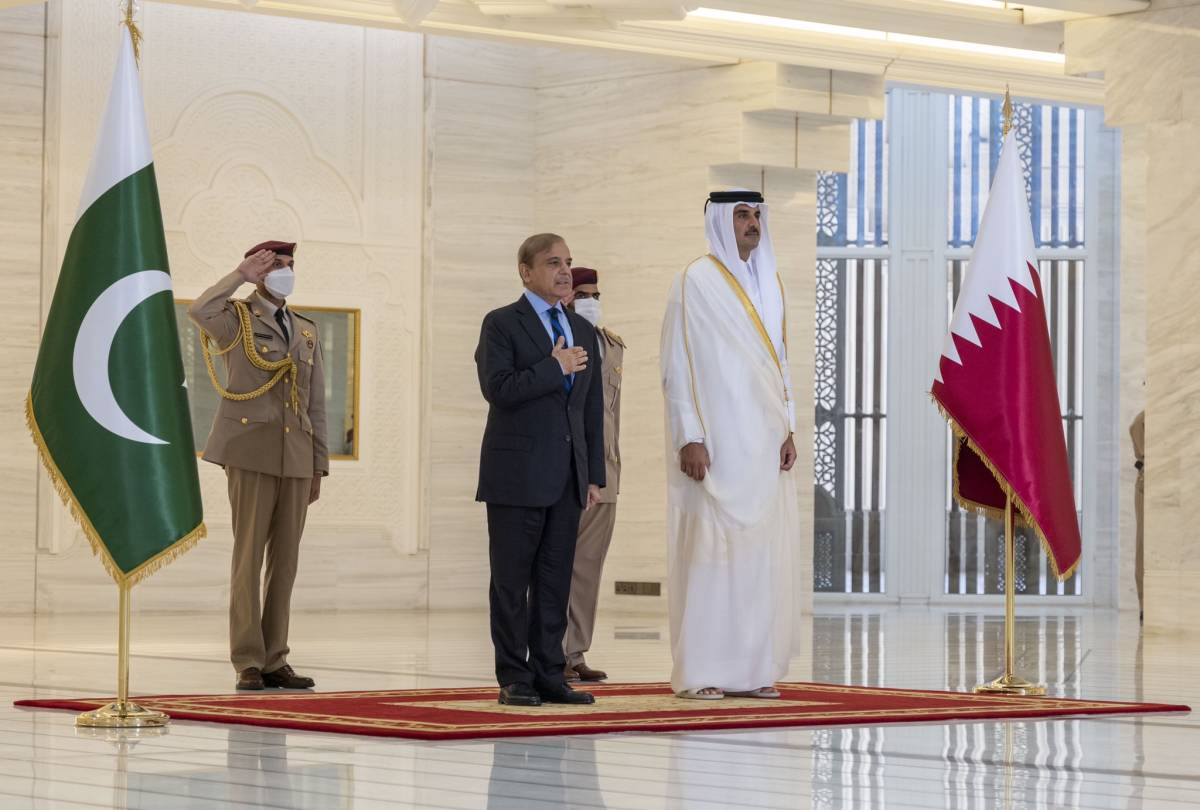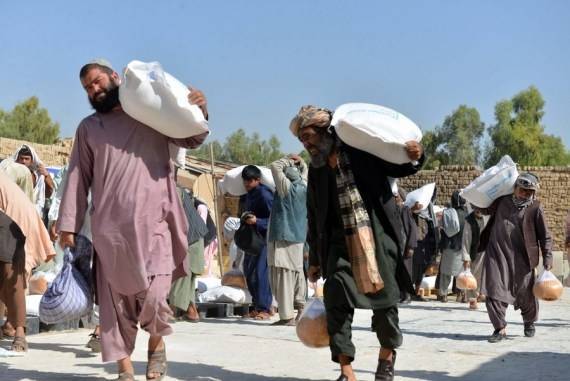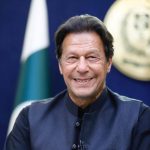Now with Shehbaz Sharif in the driver’s seat in Pakistan’s politics, ties with Qatar are expected to forge ahead, given the Qatari royal family’s help to the Sharif family, writes Aditi Bhaduri
Pakistan’s Prime Minister Shehbaz Sharif has wrapped up his Qatar visit with a sense of achievement. The cash-strapped debt and terrorism ridden country, now battling devastating floods and 24.9 % inflation has extracted a promise of three billion dollars in investments, two billion US dollars to be disbursed in the next 12 months, and a contract for allowing the Pakistani army to provide security to the gas rich country for the FIFA World Cup 2022.
Not everyone in Pakistan is happy about the latter but there is little they can do about it. Pakistan’s economic dependence on Qatar overrules their fears. Sharif’s visit took place days before the IMF board decided to release $1.2 billion in financing to Pakistan. In fact, the meeting between Pakistani and IMF officials for a $ 6 billion bailout package for Pakistan took place in Qatar’s capital too.
At a time when Pakistan badly needs an IMF loan to bail it out from its dire economic straits, its traditional allies Saudi Arabia and the UAE have committed to one billion dollar each only. Qatar has come to its rescue with its promise of two billion in addition to the already pledged 3 billion dollars earlier in 2019, though some warn that these may overlap.
Pakistanis are also seeking a deferred payment plan for the LNG bought under a long term deal. And there are also some 150,000 Pakistanis who live and work in Qatar, remitting back more than 2 billion US dollars to their home country.
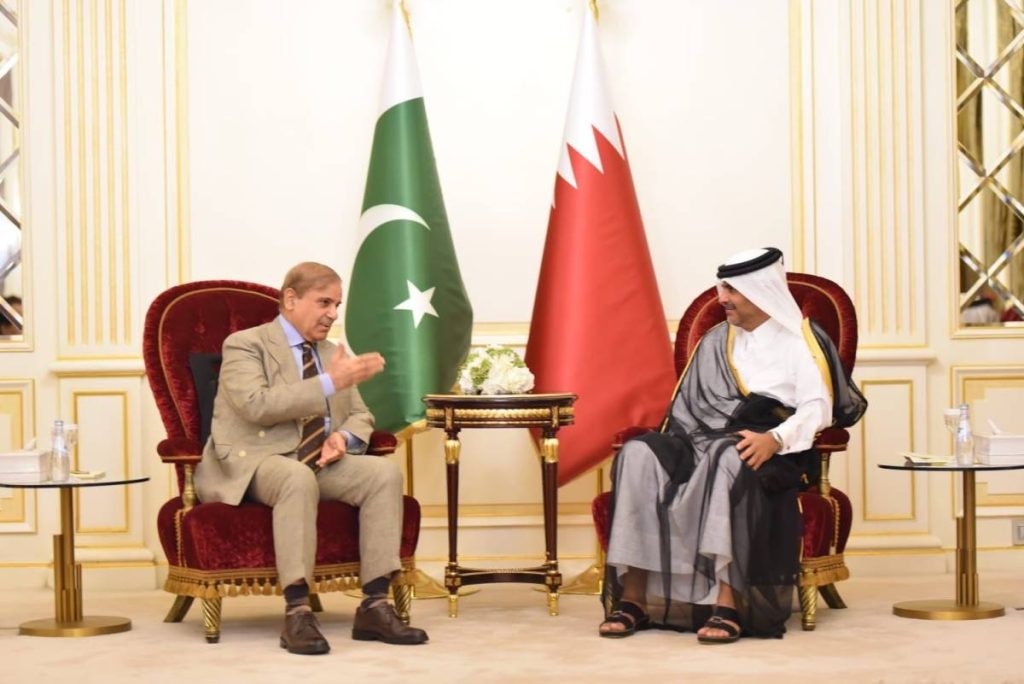
Recently, Qatar’s navy donated its entire fleet of 10 WS-61 Sea King helicopters to the Pakistani navy, which had faced a shortage of maritime utility helicopters.
Then there is the personal angle – it was Qatar that had intervened to bail out the Sharifs during the infamous PanamaGate scandal. Therefore, Shahbaz Sharif may not be in a position to heed popular outrage, in any case Pakistan’s parliament has approved of the deal.
What explains Qatar’s embrace of Pakistan? Could Pakistan be replacing Turkey in Qatar’s strategic calculations?
Of course, the two have always shared cordial relations and Pakistan has provided security services to the sheikhdom even earlier, with at least 600 Pakistani security personnel stationed in the country serving in the different security services. And Qatar has always hosted a large Pakistani expat community working there.
A closer reading, however, will reveal that ties further blossomed since 2017, when Qatar fell out with its fellow GCC members, and Saudi Arabia, followed by its allies UAE, Bahrain, and Egypt imposed a blockade on the former, levelling allegations of supporting interference and terrorism on their territories. Pakistan took a neutral stand, its trade with Qatar actually increased during this time growing by official estimates to over 230 percent to $2.6 billion in 2018, as Qatar looked to forge extra-regional partnerships with countries like Iran, Turkey, and Pakistan.
A direct shipping line between them was inaugurated in 2017 to connect Hamad Port with Karachi Port, contributing to this increase. An irate Saudi King Salman even asked which side of the divide Pakistan was. High profile visits also characterized this period, with Qatar’s Sheikh Tamim bin Hamad al Thani visiting Islamabad in 2019. Following the visit, Qatar announced that it would invest $3 billion in Pakistan, in the form of deposits and direct investments. In 2018 Pakistan became the largest beneficiary of Qatar’s initiative to educate 10mn out-of-school children around the world, as Qatar supported the Federal Ministry of Education and Vocational Training to launch a programme to educate 1mn out-of-school children in Pakistan. In February 2021 Qatar Petroleum signed a long-term 10-year agreement with the Pakistan State Oil Company to supply Pakistan with up to 3mn tonnes per year of liquefied natural gas. And Qatar is interested in participating in the China-Pakistan Economic Corridor.
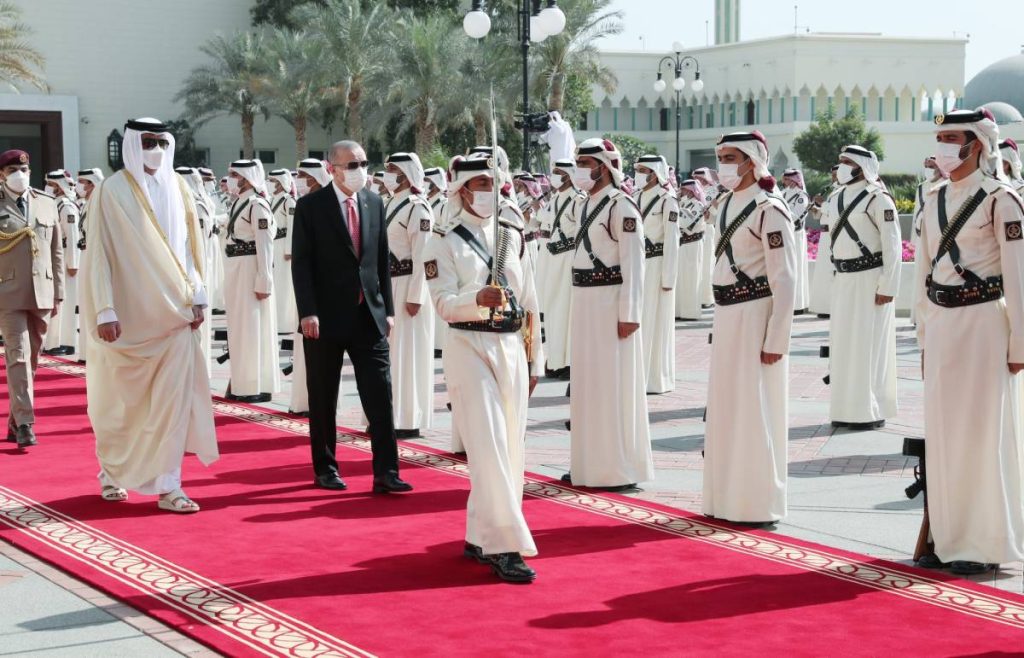
Even as Prime Minister Imran Khan tried to do a balancing act, he was forced to choose to side with Qatar and Turkey when India reorganized Jammu and Kashmir, and its Gulf allies Saudi Arabia, UAE, and Bahrain responded with understanding. Turkey took a stridently anti-India stand and together with Qatar the three tried to forge a parallel Islamic bloc to the existing Saudi-led Organisation of Islamic Conference. Pakistan also helped facilitate Doha’s hosting of the Taliban.
Now with Shehbaz Sharif in the driver’s seat in Pakistan’s politics, ties with Qatar are expected to forge ahead, given the Qatari royal family’s help to the Sharif family. This will be helpful for Qatar, which with its $445 billion sovereign wealth fund and the world’s largest natural gas reserves needs those like Turkey and Pakistan – with the Muslim world’s largest armies – to be its foot soldiers. This, even as the former’s covert rivalry with its GCC fellow members continue in spite of the Al Ula rapprochement in early 2021.
While Doha also presented Turkey with a $15 billion bailout package in 2018, and expanded Turkish military presence on its territory, economic mishandling has forced Turkey’s Recep Tayyip Erdogan to mend fences with Qatar’s rivals Saudi Arabia and the UAE, as well as re-establish diplomatic ties with Tel Aviv. While Erdogan’s political grip over Turkey turns increasingly shaky, Pakistan’s turn towards Islamism – converging with that of Qatar’s – remains stable, despite whichever party is in power.
Turkey also remains less dependent on Qatari energy resources, unlike Pakistan, which is heavily dependent on them. While Qatar acts as the conduit between the Taliban and the international community, Pakistan’s hold over the group or at least over some factions within the Taliban, remains strong, while Turkey’s relationship with the Taliban is lukewarm. Finally, Pakistan is the only nuclear Muslim country. All these may make Pakistan both more accessible and desirable a partner for Qatar. India should be watching carefully.


